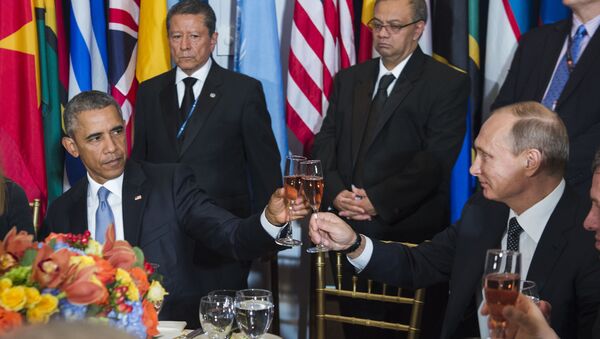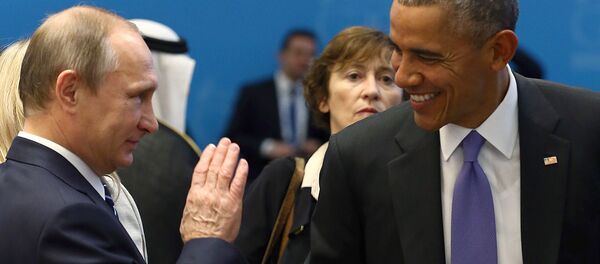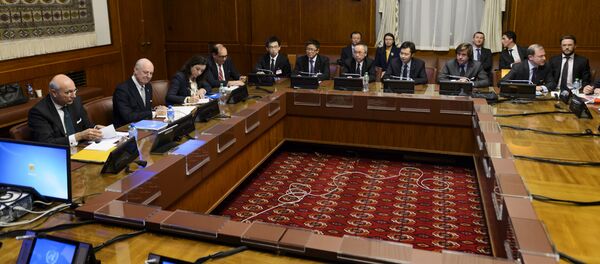Washington's Middle Eastern policy is a "riddle, wrapped in a mystery, inside an enigma": instead of joining Russia, Iran and Damascus' legitimate government in Syria, US policymakers have yet to present a consistent military strategy to defeat Daesh.
"Among the presidential candidates of the Republican Party and their foreign policy leaders on Capitol Hill, the cry is almost universal: Barack Obama has no strategy for winning the war on ISIS (Daesh). This criticism, however, sounds strange coming from a party that controls Congress but has yet to devise its own strategy, or even to authorize the use of US military force in Syria," the prominent US political commentator and syndicated columnist Patrick Buchanan notes in his recent piece for the American Conservative.
Indeed, instead of fighting Daesh, Turks are hitting the Kurds in Turkey, Syria and Iraq; the Saudis are bombing the Houthis in Yemen; and the Egyptians are trying to cope with their own homegrown terrorism.
In this light, Washington's unwillingness to create a joint coalition with Moscow, Tehran and Damascus comes as a surprise, according to Buchanan.
"In any war it is usually wise to enlarge the roster of one's allies and reduce the roster of enemies. If ISIS is the implacable enemy and must be annihilated, we should welcome all volunteers," Buchanan underscores.
Remarkably, the "US military has now recognized the Russian military's success in Syria," Pulitzer-prize-winning journalist Seymour Hersh said in his recent interview with German Economic News (DWN), referring to his sources in US intelligence and military services.
However, there is apparently light at the end of the tunnel. The US political and military establishment seems to be changing their mind regarding the prospects of Russo-American cooperation in Syria.
"Russia is emerging as an essential diplomatic and security partner for the United States in Syria, despite the Obama administration's opposition to Moscow's support for President Bashar al-Assad," US journalist David Ignatius writes in his op-ed for The Washington Post, quoting senior officials from the Obama administration.
Simultaneously, the White House has seemingly softened its stance on Syrian President Bashar al-Assad, accepting his alleged participation in the future transitional government.
Time will tell whether the countries would finally team up to eradicate the Daesh threat.




